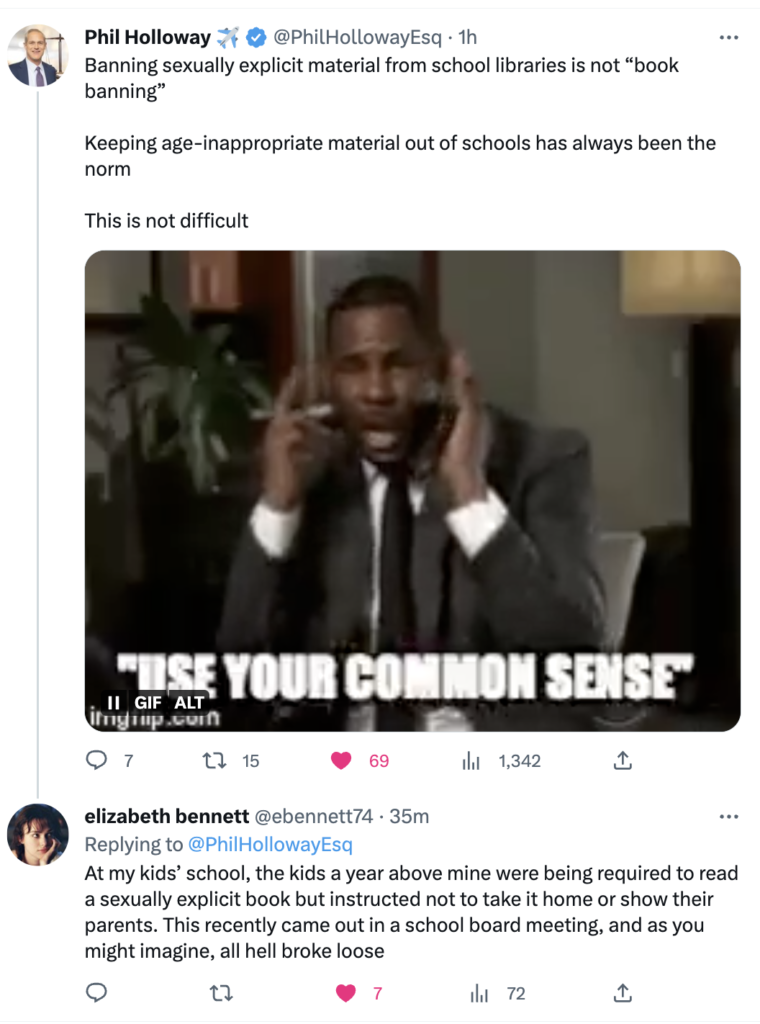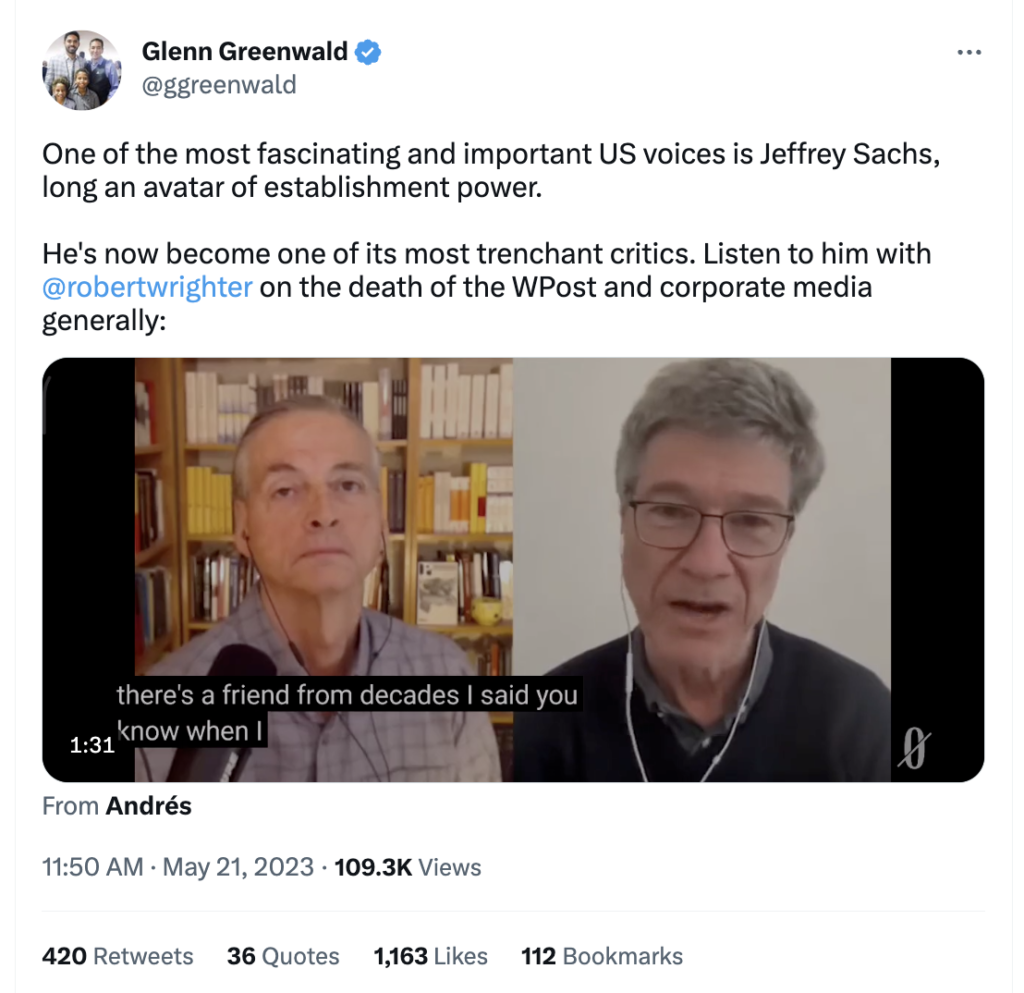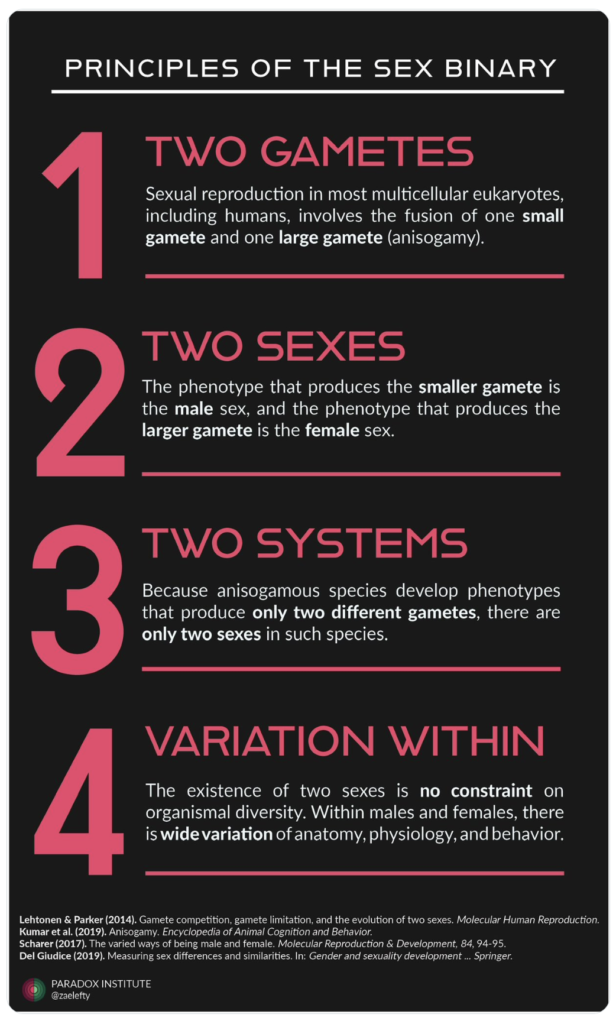Deciding what is age-appropriate is not "book banning." This is not a difficult distinction except for those who seek headlines based on half-truths.

I've seen images of many of the pages of many of the books that have purportedly been "banned" from grade school students. As a parent, I would have been aghast had my young children had access to most of these books without my specific knowledge or consent. BTW, I know "Elizabeth Bennett" personally and I have no doubt that what she has written is true.
The following is an excerpt from the Court's Aug 5, 2022 Order in the case of C.K.-W v Wentzville R-IV School District Order Denying Preliminary Injunction, US District Court, Eastern District of Missouri Case No. 4:22-cv-00191. We are facing some real problems with conservatives going crazy banning valuable and age-appropriate books in school libraries. Before you fall prey to the claim that ALL of "book banning" cases are the same, however, consider the court's description of the books being "banned" in this case:
'Fun Home,' for example, has entire illustrated pages showing characters engaging in oral sex along with accompanying ribald language. Doc. [2] at 214; see also id. at 80–81 (showing various detailed illustrations of two undressed individuals in bed together with the narrator explaining that she “spent very little of the remaining semester outside her bed”). 'All Boys Aren’t Blue' vividly describes multiple sexual encounters of the author. See Doc. [3]. “He reached his hand down and pulled out my dick. He quickly went to giving me head. . . . [W]e dry humped and grinded. . . . I put some lube on and got him up on his knees, and I began to slide into him from behind. . . . I eased in, slowly, until I heard him moan. . . . I finally came and let out a loud moan—to the point where he asked me to quiet down for the neighbors. I pulled out of him and kissed him while he masturbated. Then, he also came.” Id. at 266–268. All Boys Aren’t Blue details another encounter. “[H]e told me to lie down on the bed. He asked me to ‘turn over’ while he slipped a condom on himself. . . . [T]his was my ass, and I was struggling to imagine someone inside me. And he was . . . large. But I was gonna try.” Id. at 270–71 (second ellipsis in original).
In keeping with the pattern, 'Heavy: An American Memoir' likewise has detailed accounts of sexual encounters. The book does not attempt to hide its contents. As the back cover explains, the book discusses the author’s “complex relationship with his family, weight, sex, gambling and writing.” Doc. [4]. The author writes that “Renata pulled up her shirt, unhooked her bra, and filled my mouth with her left breast. . . . Choking on Renata’s breasts made me feel lighter than I’d ever felt. After a few minutes, Renata grabbed my penis and kept saying, ‘Keep it straight, Kie. Can you keep it straight?’” Id. at 22–23. And elsewhere, “I got close enough to the door to see Delaney was standing in the middle of the room with his soggy maroon swim trunks around his calves. Dougie was on his knees in front of Delaney with his hands behind his back. His tongue was out, licking the tip of Delaney’s penis.” Id. at 40.
Could a librarian or, ultimately, a school board official conclude that these books were age suitable for some older students and that the books merited inclusion based on their content overall? Sure. But can this Court conclude that the librarian’s determination that these books were not age appropriate was a pretense, absent some actual evidence, and that the real decisive reason for the removal was to deny access to students of certain ideas? Not at all. But Plaintiffs make the sweeping and, frankly, disconcerting request to have this Court require that the District “restore access” to these three books and “any books that were removed from school libraries during this school year and for which access has not been restored.” Doc. [19] at 17 (emphasis added). Meaning Plaintiffs would have this Court force the District to provide access to these, or any other books, that the District’s librarians concluded were appropriate for removal no matter the reason. Even if one of these books, or another that was even more sexually explicit, had been available to a library that served third graders, either inadvertently or because the librarian was unaware of the content, Plaintiffs would have this Court order the District to return the book for the third graders to read.



